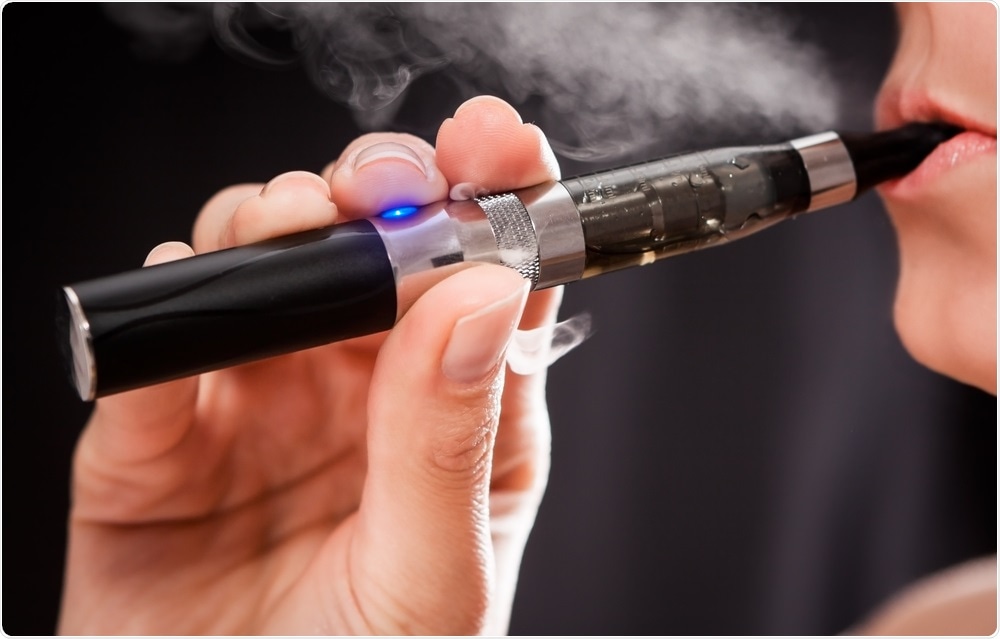The chemicals present in e-cigarettes can alter DNA in oral cells and increase the risk of cancer, according to research being presented today at the 256th National Meeting & Exposition of the American Chemical Society (ACS).

Image Credit: REDPIXEL.PL / Shutterstock
Romel Dator who will be presenting the findings says vaping is a popular trend because many people believe it is safer than smoking tobacco.
However, the long-term health effects are unknown. He says: "We want to characterize the chemicals that vapers are exposed to, as well as any DNA damage they may cause."
For the study, Dator and lead investigator Silvia Balbo collected saliva samples from five e-cigarette smokers before and after a 15-minute vaping session and tested them for chemicals that are known to damage DNA.
To assess the potential long-term health effects of e-cigarette usage, the researchers used mass spectrometry-based techniques to check for DNA damage in the cells of the participants’ mouths.
Dator and team identified three compounds that are known to damage DNA, namely formaldehyde, acrolein and methylglyoxal.
Levels of all three compounds were increased in the participants’ saliva following the vaping session.
Compared with individuals who do not vape, four of the participants had increased DNA damage as a result of acrolein exposure.
This DNA damage, referred to as a DNA adduct, arises when toxic chemicals react with DNA.
If the damage is not repaired by cells, normal DNA replication cannot occur, which increases the risk of cancer.
Next, the researchers intend to conduct a larger study involving more participants and controls and to compare the level of DNA adducts between people who vape and people who smoke regular cigarettes.
Comparing e-cigarettes and tobacco cigarettes is really like comparing apples and oranges. The exposures are completely different.
We still don't know exactly what these e-cigarette devices are doing and what kinds of effects they may have on health, but our findings suggest that a closer look is warranted.”
Silvia Balbo, Lead Investigator